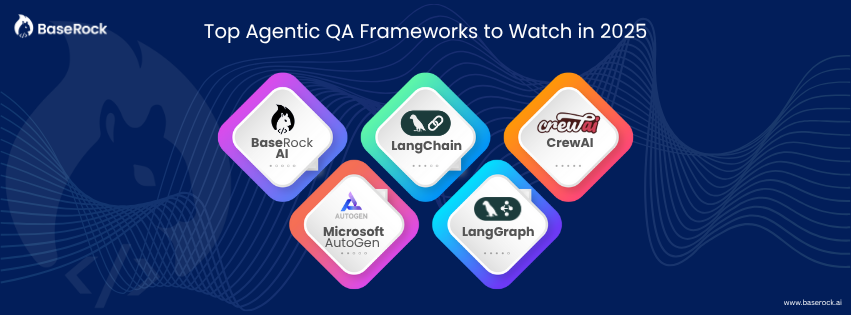

As software complexity escalates and release cycles accelerate, traditional test automation methods are struggling to keep pace. Enter Agentic QA frameworks—autonomous, intelligent systems that learn, adapt, and optimize testing workflows with minimal human intervention. These frameworks are revolutionizing quality assurance (QA) by enhancing efficiency, scalability, and reliability.
An Agentic QA framework is a software testing system powered by AI agents capable of independently analyzing, executing, and refining testing workflows. Unlike traditional automation, which relies on predefined scripts, agentic frameworks enable AI agents to:
This approach allows for more dynamic and intelligent testing processes, leading to faster and more accurate results.
The adoption of agentic QA methods is driven by several key advantages:
In 2025, the integration of agentic QA frameworks is becoming essential for organizations aiming to maintain high-quality software in fast-paced development environments.

BaseRock AI stands out with its LACE framework, which automates unit and integration testing through AI agents that learn and adapt over time. It supports multiple programming languages and integrates seamlessly with various development environments.
AutoGen excels in orchestrating multi-agent systems, enabling complex problem-solving across distributed environments. Its capabilities make it a strong choice for large-scale QA operations.
LangChain offers modular components for creating and managing AI workflows, making it easier to build complex, stateful applications. Its flexibility and compatibility with multiple APIs enhance its utility in QA processes.
LangGraph leverages graph-based architectures to manage stateful AI workflows, simplifying complex systems with advanced logic and flexible API integration.
CrewAI focuses on building autonomous agents capable of collaborating on tasks, making it suitable for QA scenarios that require coordinated agent activities.
BaseRock AI's LACE framework (Learn, Analyze, Create, Execute) is redefining software testing by introducing intelligent, autonomous, and scalable QA processes. Key features include:

This comprehensive approach ensures high code quality and reduces the time and resources required for manual testing.
When selecting an agentic QA framework, consider the following factors:
Evaluating these aspects will help you select a framework that aligns with your team's requirements and enhances your QA processes.
Agentic QA frameworks are transforming software testing by introducing intelligent, autonomous systems that enhance efficiency, adaptability, and scalability. With leading frameworks like BaseRock AI's LACE, Microsoft AutoGen, and LangChain, organizations can achieve higher code quality and faster release cycles. Embracing these frameworks in 2025 is crucial for staying competitive in the rapidly evolving software development landscape.
Ready to Future-Proof Your QA Process? Explore Baserock.ai
Q1: What makes a QA framework agentic?
An agentic QA framework employs AI agents that can autonomously learn from testing outcomes, adapt strategies, and make decisions to optimize the testing process, reducing the need for manual intervention.
Q2: How does Baserock’s LACE framework work?
Baserock's LACE framework operates through a cycle of Learning, Analyzing, Creating, and Executing. AI agents learn from previous tests, analyze code changes, create new test cases, and execute them, continuously improving the QA process.
Q3: Is Agentic QA better than traditional automation?
Yes, agentic QA offers enhanced adaptability, scalability, and efficiency compared to traditional automation, which relies on static scripts and requires more manual oversight.
Q4: Do I need coding experience to use Agentic QA tools?
While some coding knowledge can be beneficial, many agentic QA tools are designed with user-friendly interfaces and automation features that minimize the need for extensive programming skills.
Flexible deployment - Self hosted or on BaseRock Cloud